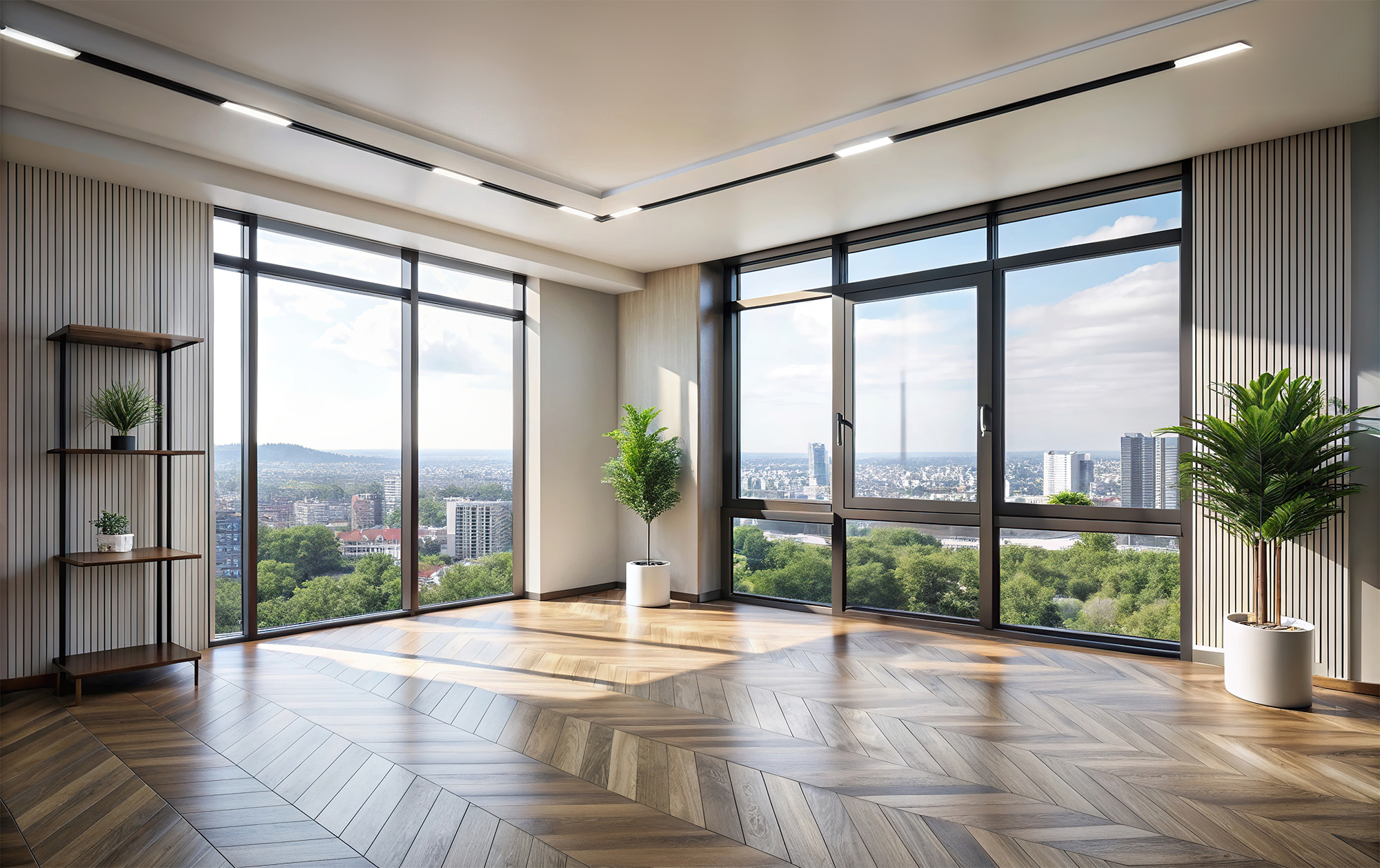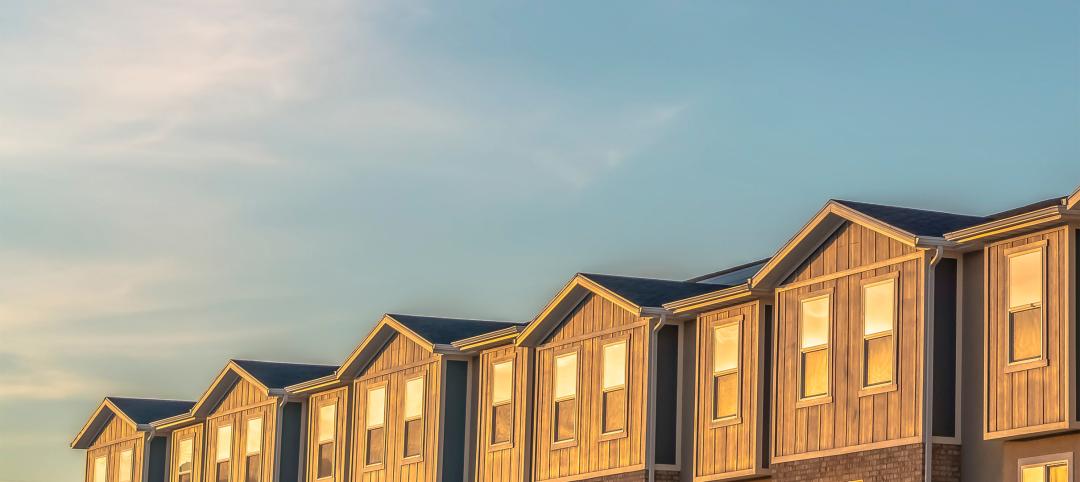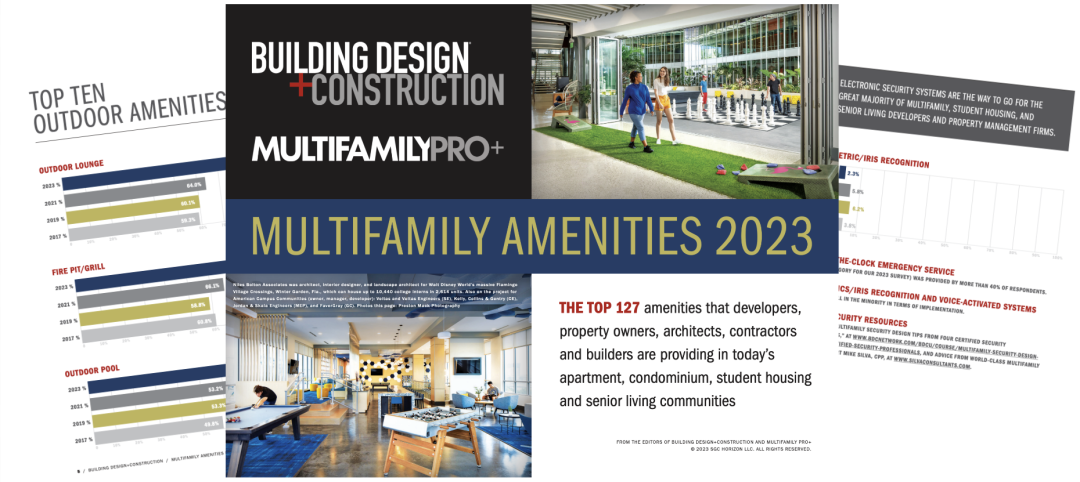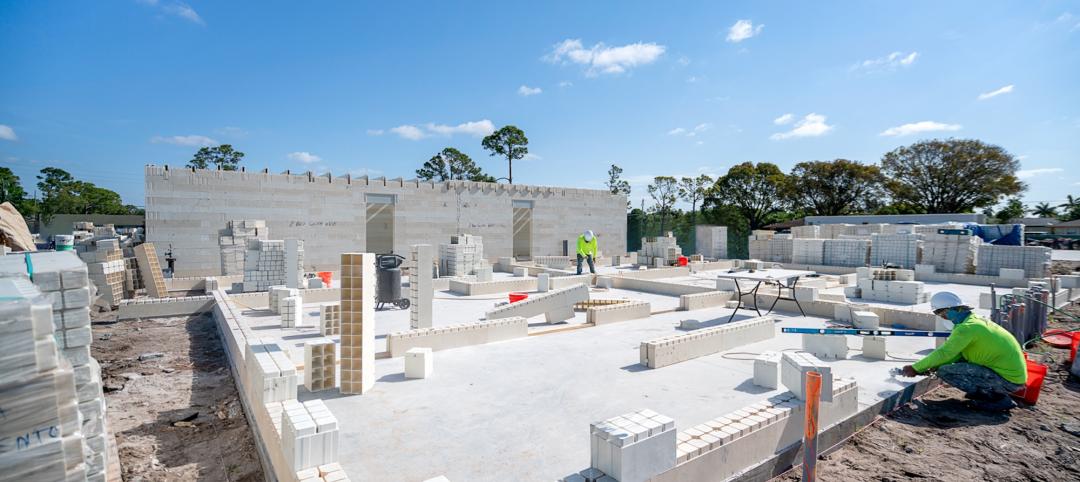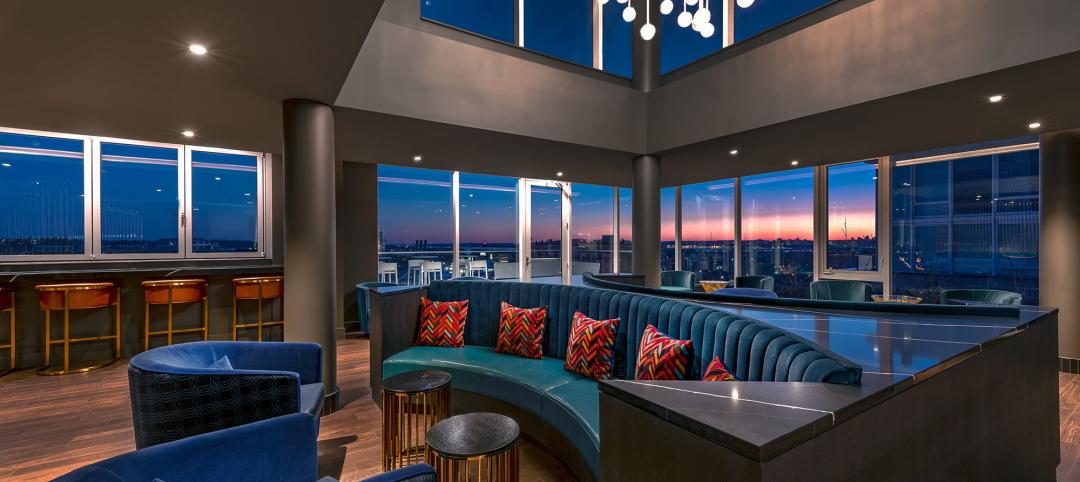The average size of new apartments in the U.S. saw substantial growth in 2023, bouncing back to 916 sf after a steep decline the previous year. That is according to a recent RentCafe market insight report released this month.
The growth in average apartment size can be attributed to the influx of two- and three-bedroom units coming on the market. In cities like Jacksonville and Orlando, Fla., large apartments lead the pack, while metros like Seattle, Wash., lead the top 100 metros in smallest unit sizes.
10 Year History of Average Apartment Size Changes
For the past 10 years, the average size of multifamily housing units have been steadily shrinking. This is driven by one-bedroom apartments that dominate the landscape, comprising nearly half (48%) of all apartments built in 2023.
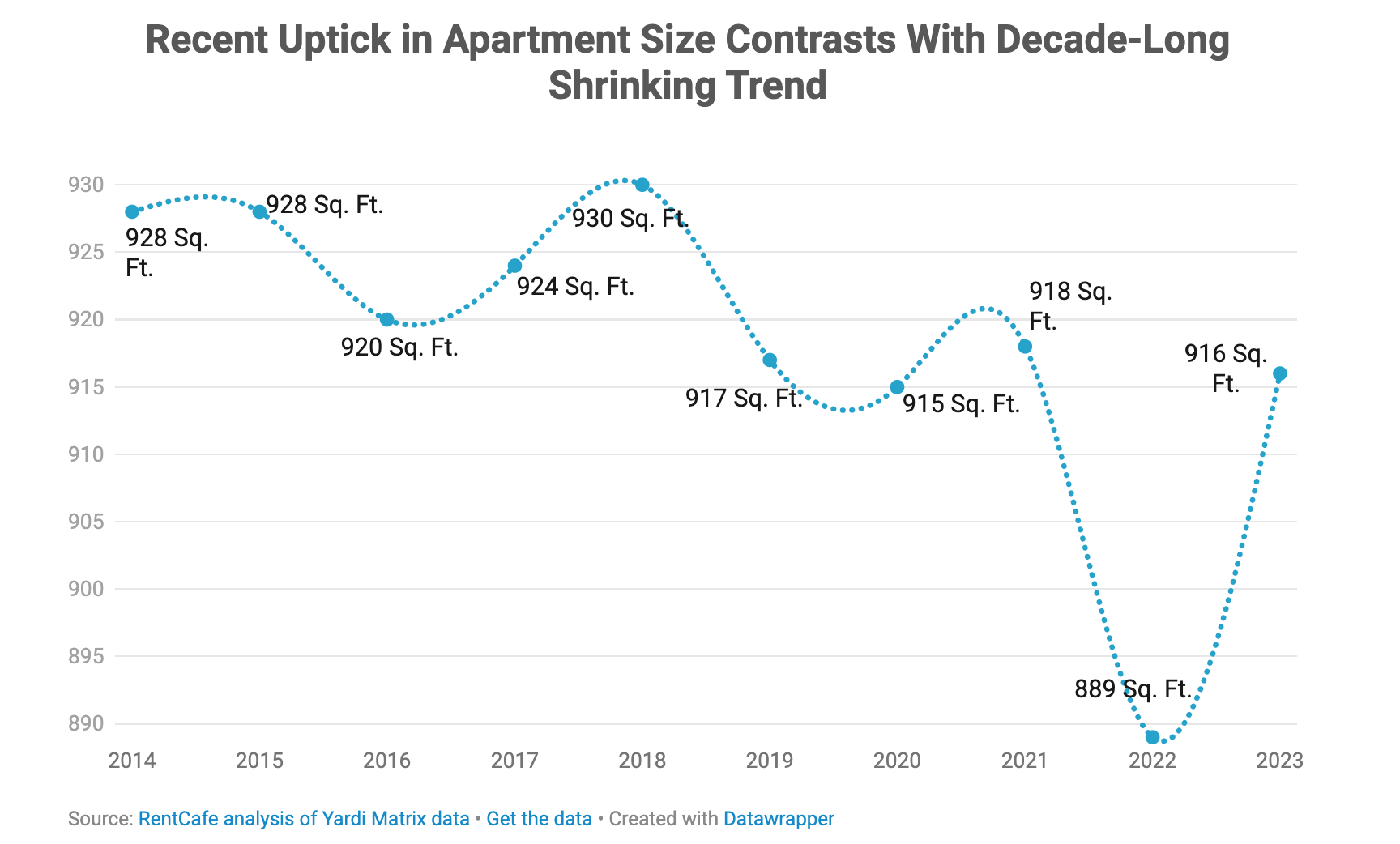
Studio apartments have shrunk by 54 sf over the last decade. One-bedroom unit sizes have decreased by 7 sf over the last ten years—a trend we’re familiar with seeing—to an average of 733 sf in 2023.
RELATED: Average size of new apartments dropped sharply in 2022
On the other hand, two- and three-bedroom units continue to grow in size on a 10-year average. Two-bedroom apartment sizes rose seven sf last year, reaching 1,099 sf. Three-bedroom units dipped to an average size of 1,347 sf in 2023, but are still 19 sf larger than they were ten years ago.

Average Apartment Size by Region in 2023
Which cities have grown to become home to the largest apartments? According to the report, sunbelt destinations cater best to renters looking for spacious living. The top state? Florida.
Top 10 Cities With Largest Size of New Apartments
- Gainesville, Fla., boasts an average new apartment size of 1,173 sf. This is a 10-year percentage increase of 19.7%—the largest increase of all top 10 metropolitan areas.
- Tallahassee, Fla., has an average new apartment size of 1,159 sf in 2023. This marks a 10-year increase of 15.4%.
- Baton Rouge, La., increased its apartment size average to 1,068 sf, a 17.6% increase over the last decade.
- Knoxville, Tenn., has an average apartment size of 1,057 sf in 2023. This is 18.1% greater than its apartment size average ten years ago.
- Marietta, Ga., while having the lowest growth of the top ten metros, saw its average unit sizes increase to 1,055 sf. This is a 2.9% growth over the last 10 years.
- Lubbock, Texas, has grown its average apartment size to 1,037 sf last year. This is a 10-year increase of 17.3%.
- Greensboro, N.C., increased its units to an average of 1,035 sf, a 13.2% increase over a ten year period.
- Henderson, Nev., grew its apartment size to 1,021 sf, an 8% increase over the last decade.
- Columbia, S.C., has an average unit size of 1,019 sf, a mere 3.7% growth since 2014.
- Louisville, Ky., has reached an average apartment size of 1,017 sf. This size is 15% greater than it was ten years ago for the metro.
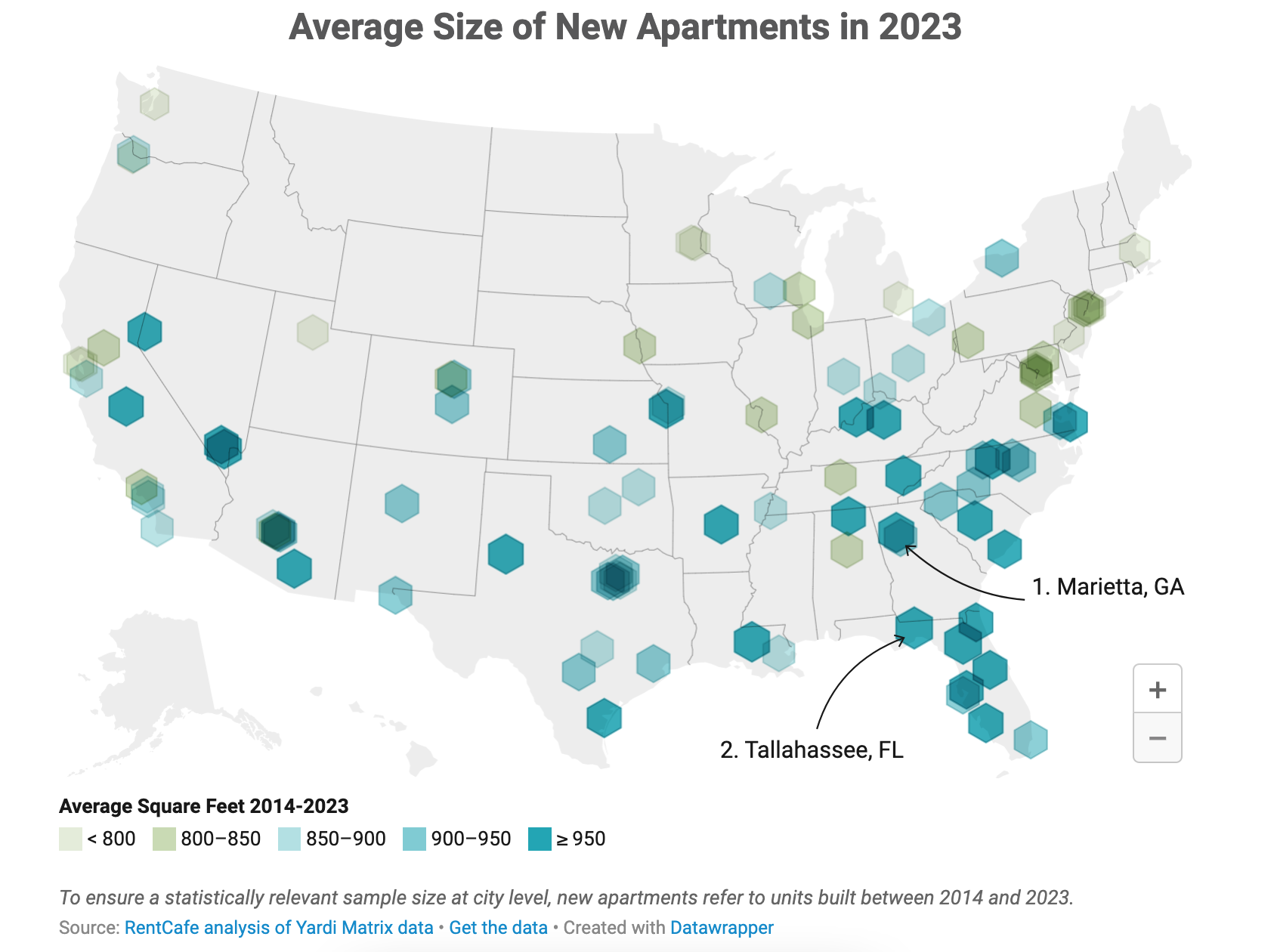
Click here to read the full RentCafe report: National Apartment Size Rebounds as More 2- & 3-Bedroom Rentals Are Built
Related Stories
MFPRO+ News | Mar 12, 2024
Multifamily housing starts and permitting activity drop 10% year-over-year
The past year saw over 1.4 million new homes added to the national housing inventory. Despite the 4% growth in units, both the number of new homes under construction and the number of permits dropped year-over-year.
Multifamily Housing | Mar 4, 2024
Single-family rentals continue to grow in BTR communities
Single-family rentals are continuing to grow in built-to-rent communities. Both rent and occupancy growth have been strong in recent months while remaining a financially viable option for renters.
MFPRO+ News | Mar 2, 2024
Job gains boost Yardi Matrix National Rent Forecast for 2024
Multifamily asking rents broke the five-month streak of sequential average declines in January, rising 0.07 percent, shows a new special report from Yardi Matrix.
MFPRO+ News | Mar 1, 2024
Housing affordability, speed of construction are top of mind for multifamily architecture and construction firms
The 2023 Multifamily Giants get creative to solve the affordability crisis, while helping their developer clients build faster and more economically.
MFPRO+ Research | Feb 28, 2024
New download: BD+C's 2023 Multifamily Amenities report
New research from Building Design+Construction and Multifamily Pro+ highlights the 127 top amenities that developers, property owners, architects, contractors, and builders are providing in today’s apartment, condominium, student housing, and senior living communities.
MFPRO+ Research | Feb 27, 2024
Most competitive rental markets of early 2024
The U.S. rental market in early 2024 is moderately competitive, with apartments taking an average of 41 days to find tenants, according to the latest RentCafe Market Competitivity Report.
Building Tech | Feb 20, 2024
Construction method featuring LEGO-like bricks wins global innovation award
A new construction method featuring LEGO-like bricks made from a renewable composite material took first place for building innovations at the 2024 JEC Composites Innovation Awards in Paris, France.
Multifamily Housing | Feb 16, 2024
5 emerging multifamily trends for 2024
As priorities realign and demographic landscapes transform, multifamily designers and developers find themselves in a continuous state of adaptation to resonate with residents.
MFPRO+ News | Feb 15, 2024
Nine states pledge to transition to heat pumps for residential HVAC and water heating
Nine states have signed a joint agreement to accelerate the transition to residential building electrification by significantly expanding heat pump sales to meet heating, cooling, and water heating demand. The Memorandum of Understanding was signed by directors of environmental agencies from California, Colorado, Maine, Maryland, Massachusetts, New Jersey, New York, Oregon, and Rhode Island.
MFPRO+ News | Feb 15, 2024
Oregon, California, Maine among states enacting policies to spur construction of missing middle housing
Although the number of new apartment building units recently reached the highest point in nearly 50 years, construction of duplexes, triplexes, and other buildings of from two to nine units made up just 1% of new housing units built in 2022. A few states have recently enacted new laws to spur more construction of these missing middle housing options.



